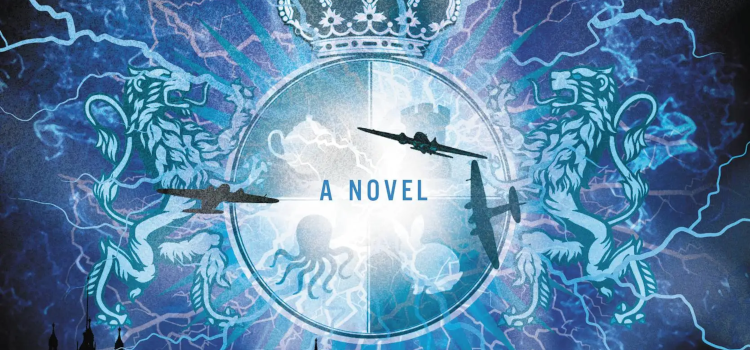I can’t believe I haven’t previously reviewed the Checquy books, particularly since The Rook is amongst my favourite urban fantasy novels – they aren’t fresh enough in my mind to review at the moment, but I’ll review the Rook, and the series overall next time I re-read them (in the meantime, if you have any affection for urban fantasy at all, particularly English (with a capital E) urban fantasy (Rivers of London, the Laundry) just pick up the Rook).1
This is book 3 of the Checquy books, so there are some light spoilers for the Rook here; if you haven’t read that, and don’t know anything about it, go read that first.
Blitz is a very well constructed book; I say this not to damn with faint praise, but to highlight what O’Malley has done here. At its core, it tells two parallel stories, one about an understandable, but impetuous act during World War 2 with potentially devastating personal and political consequences for all involved, and the other about a 30 something librarian who suddenly finds themselves enmeshed in the hidden bureaucracy of the supernatural. Unsurprisingly to anyone who has ever encountered a split narrative, there is a connection between these two threads (and a good one), but what it really allows O’Malley to do is to explore the consequences of his world building.
In the previous two novels, the Checquy were established as a secret supernatural police and defense force, integrated with, but highly independent from the government and with a mandate both international and domestic. The war setting interrogates this;2 when there is an existential crisis, what does it mean to be independent, how does an agency stay secret in these circumstances, and what are the opportunities and risks associated with such power? Even more importantly, when your entire identity is built around protecting people, how will you react when people are dying around you and for you? Layered on top of this is an examination of the Checquy’s broader role in the world, filtered through colonialism and the rapidly approach end of the British Raj; do the ends justify the means in places where the Checquy has only limited means and control.
In the present, we get our third (in the series) new to the Checquy narrative. By picking a supernatural late bloomer, we get a look at how a Pawn is made, as Lyn is run through all of the training and orientation (including a stay at boarding school) required to make an operative, while retaining the perspective of a normal person. This pays dividends in both story lines, as characters raised in the organisation bounce off those who arrived later, and each see the mission in different ways.
None of this would matter if the book was boring, but each of the stories is entertaining on a plot level, and fit together to be more than the sum of their parts. A lot of this comes down to the strong character work – Lyn could be the protagonist of a great self improvement story, if the catalyst for self improvement was setting your house on fire and being drafted into the supernatural armed forces, and the trio of world war two protagonists are each interesting in their own right: the consummate soldier, the gifted heiress, and the resourceful junior, all serving under the joint head of the Checquy. They swim in a sea of interesting supporting characters, both mundane and supernatural, and there are even some familiar faces fleshed out for longtime readers.
It’s not entirely perfect, there are a couple of instances of telling, not showing to get the point across, and I would have liked some closure or reckoning with a couple of aspects of Lyn’s story. 3 These however are minor complaints; if I’m honest my major complaint is that while this is a very enjoyable book, which moves the series forward, I would really like another dedicated Myfanwy Thomas book. Taking the book on its merits, it’s a solid entry in the series, that could be read independent of the rest of the series (but I would still recommend reading the Rook first).
A worthwhile detour in the world of the Checquy that greatly expands the world building, and is a good on-boarding point for those more interested in World War 2 than urban fantasy.
